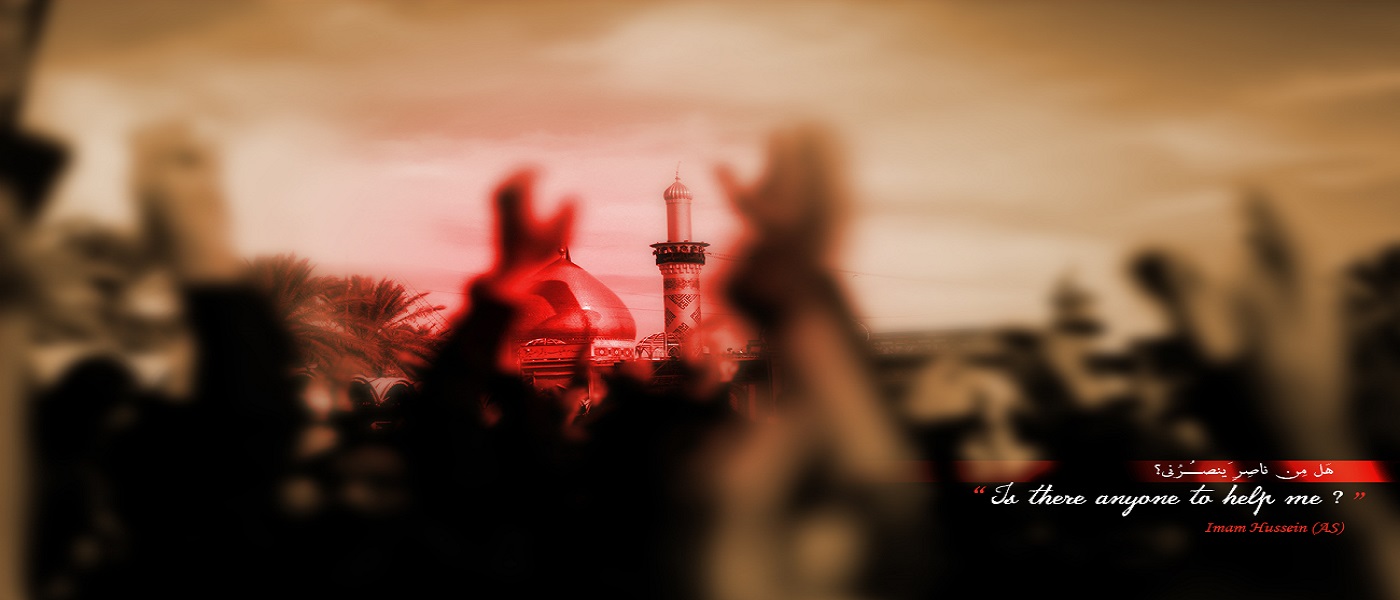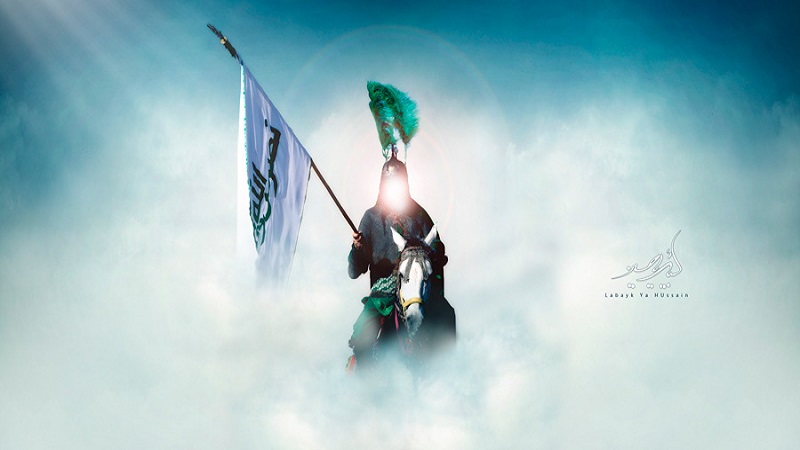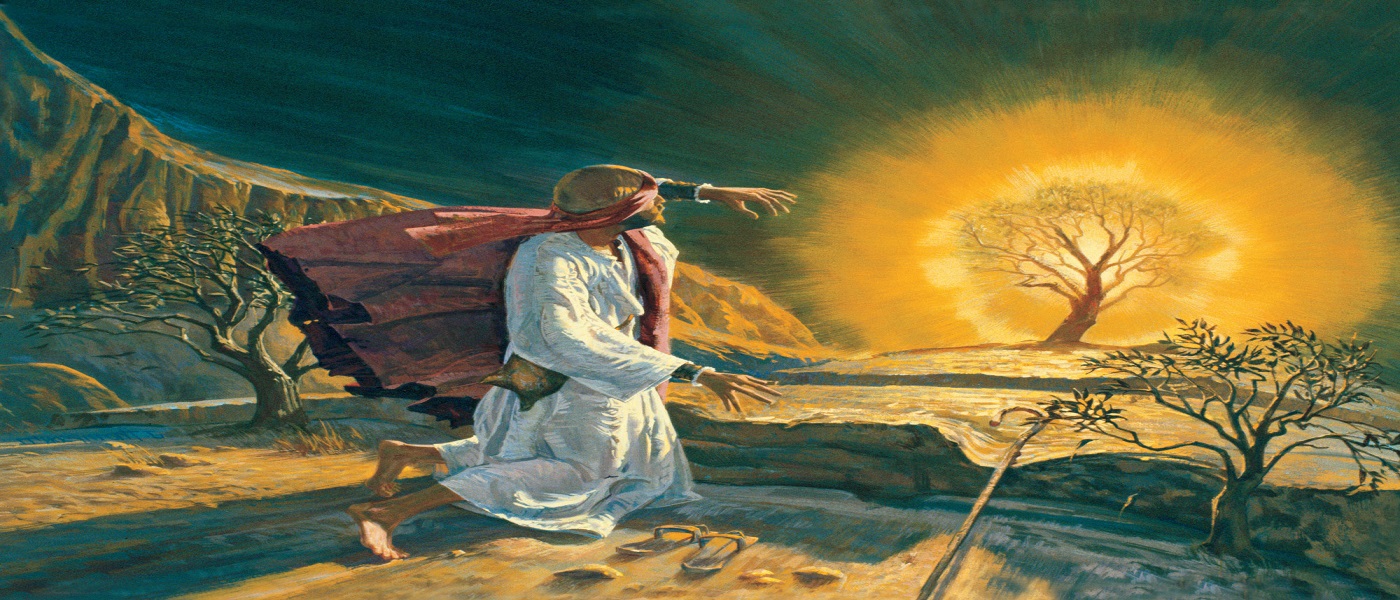

What Does Islam Say about Environmental Protection?
Nowadays, we hear every day that our earth is becoming more and more polluted and that a day will come that our life on this planet will be no longer possible. This is undoubtedly the result of our negligence toward the blessing that God had granted us, the blessing of nature and a clean environment: “It is He who created for you all that is in the earth…” (2:29). We are responsible for whatever is going on in our surroundings and at the same time dependent upon it to be able to live.
It is important to note that at the time of the emergence of Islam, people did not face such complex environmental issues and thus this matter has not been dealt with in depth in Islam. Nevertheless, Islam has emphasized the significance of preserving the environment and provided us with guidelines that help us find solutions for such complexities through the narrations and actions of Prophet Muhammad (PBUH&HP) as well as the twelve infallible leaders (AS). This article is an attempt to summarize these matters for you briefly.
Why should we preserve the environment?
The answer is quite simple, and it reveals the direct correlation between human beings and their surroundings. Preserving the environment equals our own physical and mental wellbeing. Our immediate surrounding is where we are always in touch with, and its quality will inevitably affect our mind and soul. Moreover, we are the ones who make use of the environment to fulfill our needs, and the way we use it will ultimately determine our condition of life.
On the other hand, Allah has made this world in perfect equilibrium and human’s excessive exploitation of natural resources will result in damaging this balance: “And We spread out the earth and cast in it firm mountains, and We grew in it every kind of balanced thing” (15:19). When the balance is disturbed, the result will be the many environmental crises that we are faced with nowadays. These include pollution, global warming, natural resource depletion, waste disposal, climate change, loss of biodiversity, deforestation, ocean acidification, ozone layer depletion, acid rain, water pollution, etc. [1].
How Can We Preserve the Environment?
The problems mentioned above are the result of our irresponsibility toward the blessing of the environment, and this is we that should compensate for it. What follows are some Islamic guidelines for us to observe in our treatment of the environment:
1. Avoid Wastefulness
When you make excessive use of natural resources such as water or what is produced by water such as electricity, the paper that is made through cutting trees, fossil fuels, etc., you put the environment in danger and threaten its durability. Quran also emphasizes the necessity to be moderate in using God’s blessings in this world: “… Eat and drink, but do not waste; indeed, He does not like the wasteful” (7:31).
Moreover, our environment is not restricted to our use only but is a public possession from which every human being has the right to benefit. Therefore, we should be careful not to violate other people’s rights in having a share in the environment through our extravagant exploitation of its resources.
There is a general rule in Islam that bids Muslims not to “cause harm or return harm” [2], meaning that they should act in a way that neither brings inconvenience for others nor undermines their situation. Through wastefulness we bring injustice to both ourselves and other human beings; we consume their share in the environment and damage God’s blessing that was given to us to sustain our livelihood. So, respect yourself as well as your fellow human beings through respecting your surroundings.
2. Keep your Environment Clean
Think about the environment as your home and keep it clean as you like your home to be neat and tidy. Prophet Muhammad (PBUH&HP) says in a narration that: “Allah is pure and likes purity and cleanliness… therefore, keep where you live in clean” [3]. As it was mentioned above, pollution is one of the most pervasive environmental issues in today’s world; this includes air pollution, water pollution, as well as the excessive amount of waste produced on a daily basis.
Those who have faith in Allah and consider His satisfaction in every instance of their lives must be much more cautious regarding their own or their environment’s cleanliness since as Prophet Muhammad (PBUH&HP) puts: “Cleanliness roots in one’s faith” [4].
Air, water, and soil are the three elements that are the source of life on the earth, which has been mentioned in the Quran as well as narrations [i]&[ii]. It is all the matter of your choice. Keep the air you breathe in clean by choosing to take a walk or public transportation instead of using your car. Preserve the water fresh and pure by avoiding throwing waste in the water, urinating in it, and producing waste water excessively; Imam Ali (AS) emphasizes that water has some inhabitants, so we should not harm them through polluting it [6].
Even at the time of war, Prophet Muhammad (PBUH&HP) forbade his soldiers to pollute or poison their adversary’s city [7]. So, let the soil from which your food is provided remain unpolluted by not throwing waste, especially those that do not dissolve in the environment such as plastic waste, etc.
3. Engage in Green Activities
Plant a tree or bring awareness to people about the environment and the natural crisis that is threatening the earth and its inhabitants. There are many narrations from Prophet Muhammad (PBUH&HP) that highlight the necessity of planting trees. For instance, he says: “If a Muslim plants a tree and a bird, human or another creature eats its fruit, it will be considered as an act of charity from him [by Allah]” [8].
Also, Imam Sadiq (AS) considers planting trees and agriculture as the occupations which bring lawful (Halal) earning for the person performing them [9]. When your surrounding is green, your life will become lively and energetic [iii], and you will become more efficient in your performance.
Conclusion:
Finally, it all depends on you and how you want your future to be like. A green and lively environment is the result of our endeavors to preserve it and to give our posterity the opportunity to enjoy the blessing of God. The message of Islam in this matter is again that of moderation and responsibility which guides human beings to live in perfect equilibrium with the environment.
Notes:
[i] (25:54), (23:12), (24:45), (30:24), (21:30)
[ii] Imam Sadeq (AS) said: “life in a land where is devoid of these three essential factors is highly difficult and challenging: clean air, fresh and plentiful water, as well as fertile ground” [5].
[iii] Imam Ali (AS) said: “looking at the green nature causes freshness, liveliness and vitality” [10].
References:
- Environment
- Shaikh al-Hur al-Aamili , Wasail Al-shia , vol. 18, p.32
- Muhammad ibn Hassan Sheibani, Al-Jame Al-Saghir, vol.1, p.267
- Muhammad Baqir Majlisi ,Bihar al-Anvar, vol.59, p. 291
- Ibn Shu'ba al-Harrani, Tuhaf al-Ughul, p.320
- Muhammad ibn Ali Al-Ehsaei, Avali al-Leali, vol.2, p. 187.
- Mirza Hussain Tabarsi , Mustadrak al-Wasail, vol. 13, p.26.
- Muhammad ibn Ya'qub al-Kulayni al-Razi , Usul al-Kafi, vol.5, p.260
- Shaykh as-Saduq,Uyun Akhbar ar-Reza (AS), vol.2, p. 40
Share This Article

Democracy in the Light of Imam Hussain’s (AS) Movement
One of the questions that arises about Imam Hussain’s (AS) movement, which is of great importance especially in the modern days, is whether he desired to form an Islamic community, and if so whether the people willingly wanted to accept his leadership or not. In other words, did Imam Hussain (AS) actually want to rule over the Islamic community? Did he seek power? Did people join Imam Hussain (AS) of their own free will or they were forced, enticed or threatened to do so? The answers will reveal the core message of Imam Hussain (AS)’s revolution for us today.
Did the Infallible Imams Long for Leadership?
To answer these questions, we should first find out what the idea of the infallible Imams (AS) was about power. If we carefully look at their lives, we will come to know that they did not struggle for power nor did they have a craving to attain it. At the same time, though, whenever there was a public demand to govern over people, they did not refuse that request. Power or governing a community in the infallible Imams’ eye is nothing but a duty to serve people, protect their rights and bring justice among them.

They considered power as the means of reviving and expanding the divine goals and principles and preserving the moral values. So having political power was not of inherent value to them. You can see the proof in the following account:
“This world of yours is no better than the sneezing of a goat to me.”
After the death of the third caliph, Uthman, the crowd of people rushed to Imam Ali (AS) and asked him to take up the reins of government. But Imam Ali (AS) replied: “It is better for me to be your vizier and advisor rather than a ruler… leave me and go to others” [1]. In fact, if it was not for the sake of justice and people’s frustration and call for help, Imam Ali (AS) would have never accepted to be the ruler, as he said: “In my view this world of yours is no better than the sneezing of a goat” [2].
Or in another occasion, he said to one of his companions that his worn-out patched shoes were dearer to him than ruling over people unless for the fact that he may establish right and ward off wrong [2].
Imam Hussain’s (AS) Attitude toward Leadership (Political Power)
Imam Hussain (AS) had the same attitude toward power as his father. He did not seek a leadership role unless for the sake of eliminating injustice and corruption from the community. And that’s why Imam Hussain did not take the oath of allegiance to Yazid, the ruthless caliph of that time.
Clearly, it is every individual’s duty to fight against oppression and injustice in society. In other words, standing against tyranny is a moral and virtuous act in itself that is not entirely dependent on the companionship of others. However, when it comes to the issue of gaining power or accepting people’s leadership to fight against tyranny, the morality and value of this uprising depend on whether the leader is merely seeking reformation, or he struggles to gain supremacy over people. Such arrogance in leadership, in the latter case, can be eliminated by the presence of people.
Democracy is a Two-Way Street
When people of Kufa heard Imam Hussain (AS) had not pledged allegiance to Yazid’s government, they got impressed and sent thousands of letters to Imam Hussain (AS) asking him to go there and serve as their leader to fight against the tyranny. He did not take their request for granted nor did he accept their invitation right away. Instead, he decided to send his representative, Muslim ibn Aqil, to them to confirm their loyalty. That’s because in Islam the relationship between people and the government is a two-way street. On one way is the voting public -those who decide who becomes their leader and have to be loyal to him- and on the other path is the government, who also needs to be loyal to people and care about their well-being. And this is one of the important aspects of democracy in its true sense of the word.
Here another aspect of Imam Hussain’s (AS) movement is revealed which is beyond the mere fight against oppression: the necessity which made Imam Hussain (AS) decide to take power, i.e., people’s will and invitation.
Imam Hussain (AS) Accepted People’s Request
Imam Hussain (AS) thought it was necessary to accept the people’s leadership because they had asked him to do so.
If Imam Hussain (AS) had sought supremacy, he would have accepted people’s leadership at any cost. But he fulfilled what God told him in the Holy Quran:
“Do not be like those who left their homes vainly and to show off to the people, and to bar [other people] from the way of Allah” (8:47)
He also said: “Indeed, I have not risen to make mischief, neither as an adventurer nor to cause corruption and tyranny. I have risen solely to seek the reform of the Ummah of my grandfather (PBUH&HP)” [2].
He expressed it manifestly in his speeches that he would accept people’s leadership only if the elites of the community were all agreed on that invitation. He repeated it once again when he was faced with Hur’s army on his way to Kufa and emphasized that the people of Kufa had invited him by sending thousands of letters and requested him to take over the affairs. He explicitly stated that if the people of Kufa regretted their decision, he would return. He did not want to impose himself on people!

People Must Also Be Loyal to Their Leader
People of Kufa had invited Imam Hussain (AS), they had chosen him as their leader. But they were too weak to stand for what they had asked for. They were threatened and enticed by the tyrant governor of Kufa and could not keep their promise. Their hearts were with Imam Hussain (AS), but in practice, their swords were against him. They left Imam Hussain’s (AS) side and so the democracy they wished for was not materialized among them.
The Last Word
Finally, in the Islamic view of democracy, there has to be a balance between the rights and duties of both people and the rulers. Otherwise, there would be a disaster.
Many times in a democratic scene, there is a ruler who oppresses a lot of people. However, in the tragic story of Imam Hussain (AS), there is a group of people who choose and invite their leader, and promise to support him but go back on their pledge and fight against him, which ultimately resulted in the martyrdom of Imam Hussain (AS), one of the most righteous people on earth.
Reference:
- www.islamquest.net
- www.al-islam.org
Read More

What Is it Said about Prophet Moses in Islam? | Prophethood
In the first part of the story, we went through Prophet Moses in Islam and his childhood events, his youth and his journey to Midian (Madyan), where he met Prophet Shu’ayb (PBUH) and married his daughter, and after a few years, he decided to return to Egypt to help his people.
Prophet Moses in Islam
On the way to Egypt Moses and his family got lost in the desert. Suddenly “he descried a fire on the side of the mountain. He said to his family, ‘Wait! Indeed, I descry a fire! Maybe I will bring you some news from it, or a brand of fire so that you may warm yourselves’” (28: 29).
When Moses reached the fire, he was called, “‘O Moses! Indeed, I am your Lord! So take off your sandals. You are indeed in the sacred valley of Tuwa. I have chosen you; so listen to what is revealed” (20: 11-3).
So he became a messenger and was given certain miracles. Then he was ordered to “Go to Pharaoh” as “He has indeed rebelled” (20:24). Moses asked God to appoint a minister for him from his family; his brother, Aaron from his biological mother. And God accepted (20: 29-36).
Still, Moses and Aaron were afraid to go Pharaoh as they knew him and his power very well. It sounded impossible for both of them to go to Pharaoh and try to guide him to the right path and to ask him not to torture Children of Israel (Bani-Israel) anymore. But as God was aware of their fear, so He revealed to Moses: “We will strengthen your arm by means of your brother, and invest both of you with such authority that they will not touch you. With the help of Our signs, you two, and those who follow the two of you, shall be the victors” (28: 35).
One crucial point that the Quran emphasizes is that God even tells Moses and Aaron about how to speak to Pharaoh to make their words effective. God said to them: “Speak to him in a soft manner; maybe he will take admonition or fear” (20: 44). From this verse and the depiction of Moses in Islam, one can learn that if he/she wants to have an influential chat or speech with others, he/she should speak softly and with kindness so that the listener can hear and think in peace of mind [1].
1. Moses and Pharaoh
Moses and Aaron meet Pharaoh and Aaron turns his rod into a snake. Culture Club / Contributor / Getty Images
Moses and Aaron went to Pharaoh and said: “We are the apostles of your Lord. Let the Children of Israel go with us, and do not torture them! We certainly bring you a sign from your Lord, and may peace be upon him who follows guidance!” (20: 47)
As mentioned in the verses of chapter Taha, Moses started a discussion with Pharaoh, mostly based on issues about the unity of God and believing in the hereafter (20: 48 -55). And God “showed him all Our signs. But he denied [them] and refused [to believe them]. He said, ‘Moses, have you come to us to expel us from our land with your magic?” (20: 56-7)
Pharaoh decides to compete with Moses’ miracles with magic. So they set a date to compete (20: 58 -9).
The Magicians Submitted to Moses
On the day of competition, the magicians said: “O Moses! Will you throw first, or shall we? He said, ‘No, you throw first’” (20: 65 -6). “So they threw down their sticks and ropes, and said, ‘By the might of Pharaoh, we shall surely be victorious!” (26: 44) “Thereat Moses threw down his staff, and behold; it was swallowing what they had faked” (26: 45).
Since the magicians were the best magicians from around Egypt that Pharaoh had gathered, and they had complete magic trainings, as soon as they saw the act of Moses, they realized that it could, by no means, be magic. [2] “There at the magicians fell down prostrating. They said, ‘We have believed in the Lord of Aaron and Moses!’” (20: 70)
2. Years of Prophethood in Egypt
After the magicians believed in God of Moses and other people also became believers, the elite of Pharaoh’s people said: “Will you leave Moses and his people to cause corruption in the land, and to abandon you and your gods?” (7: 127)
It can be driven from the above verse that after Moses’ victory against magicians, Pharaoh might have given Children of Israel (Bani-Israel) some sort of freedom in which they had the chance to spread the religion of Moses. Therefore, the elites of Pharaoh’s people warned him about this issue, and Pharaoh replied: “…We will kill their sons and spare their women, and indeed we are dominant over them” (7: 127) [3].
As Pharaoh threatened Children of Israel (Bani-Israel), Moses advised his people that in case they wished to overcome the enemy they should “Turn to Allah for help and be patient” and to make sure that “the outcome will be in favor of the Godwary” (7: 128) [4].
As followers of Moses complained to him about Pharaoh’s torments, he said: “Maybe your Lord will destroy your enemy and make you successors in the land, and then He will see how you act” (7: 129). It seems that they wished by the arrival of their savior, everything would be changed at a glance and they would have no hardship anymore, while Moses informed them that for reaching the success they had to go through hard times, and have patience and piety.
And in the latter verse it mentions that “maybe” your Lord will help you by destroying your enemy, and if He does so, He will do it to test you and see what you will do if you come to power [5].
3. Signs for the People of Pharaoh
During the years that Moses and his people were living in Egypt, God tested People of Pharaoh by many different challenges [ii], so that they might return to God. But they never believed.
They kept saying that all the signs were magic
As the first wave of incidents did not bring about a change in the heart of People of Pharaoh, and they said to Moses “Whatever sign you may bring us to bewitch us, we are not going to believe you” (7: 132), God sent down to them harder challenges such as “a flood and locusts, lice, frogs and blood, as distinct signs. But they acted arrogantly, and they were a guilty lot” (7: 133).
It is said in the exegesis of the above verse that People of Pharaoh kept denying Moses and kept calling his miracles as magic. Therefore, God sent them a flood. They went to Moses and said if he stopped it, they would believe in him. But when the flood stopped, they turned their back on Moses. The same happened by sending locusts, lice, frogs, and blood and they kept denying [6].
4. Leaving Egypt with Bani –Israel
After many years that Moses tried to convey God’s messages to Pharaoh and his people, they still kept denying him.
So, Allah Ordered Moses to take his people out of Pharaoh’s land; “We revealed to Moses, [saying], ‘Set out with My servants at night, and strike out for them a dry path through the sea. Do not be afraid of being overtaken, and have no fear [of getting drowned]” (20: 77).
In the next part of this article, we will follow the story of Moses in Islam from the time they were saved from Pharaoh.
Notes:
[i] Children of Israel (Bani-Israel) were the generation of Prophet Jacob or Israel (PBUH), who at the time of Prophet Joseph (PBUH), migrated to Egypt and settled there for years. (12: 93-9)
[ii] “Certainly We afflicted Pharaoh’s clan with droughts and loss of produce, so that they may take admonition. But whenever any good came to them, they would say, ‘This is our due.’ And if any ill visited them, they took it for ill omens attending Moses and those who were with him. (Look! Indeed the cause of their ill omens is from Allah, but most of them do not know)” (7: 130-1)
References:
- Makarem –e Shirazi, N. Tafseer-e Nemouneh, vol. 13, p. 209
- Makarem –e Shirazi, N. Tafseer-e Nemouneh, vol. 13, p. 247
- Makarem –e Shirazi, N. Tafseer-e Nemouneh, vol. 6, p. 309- 310
- Makarem –e Shirazi, N. Tafseer-e Nemouneh, vol. 6, p. 311
- Makarem –e Shirazi, N. Tafseer-e Nemouneh, vol. 6, pp. 312 – 13
- Makarem –e Shirazi, N. Tafseer-e Nemouneh, vol. 6, pp. 321-3
Read More

